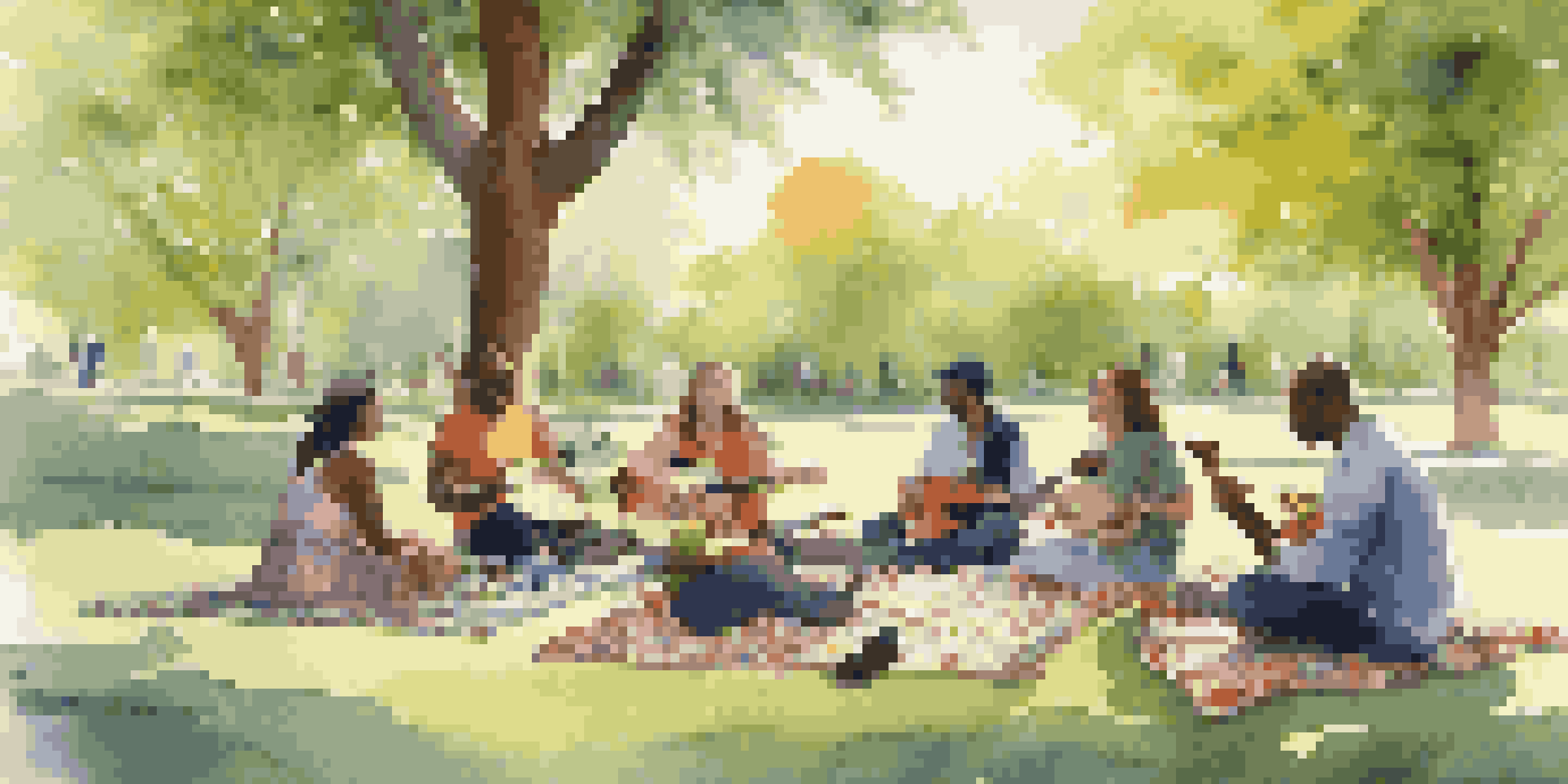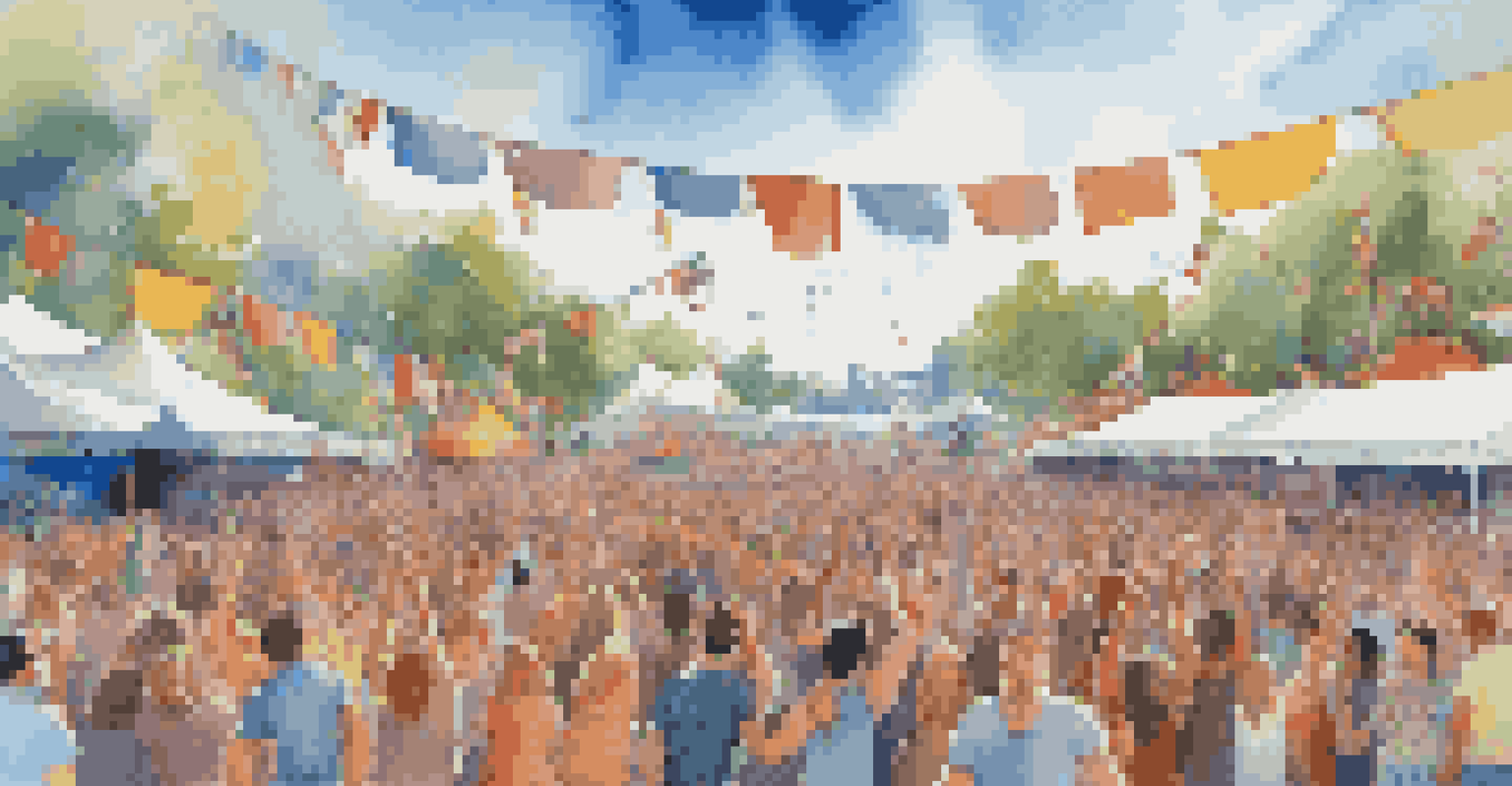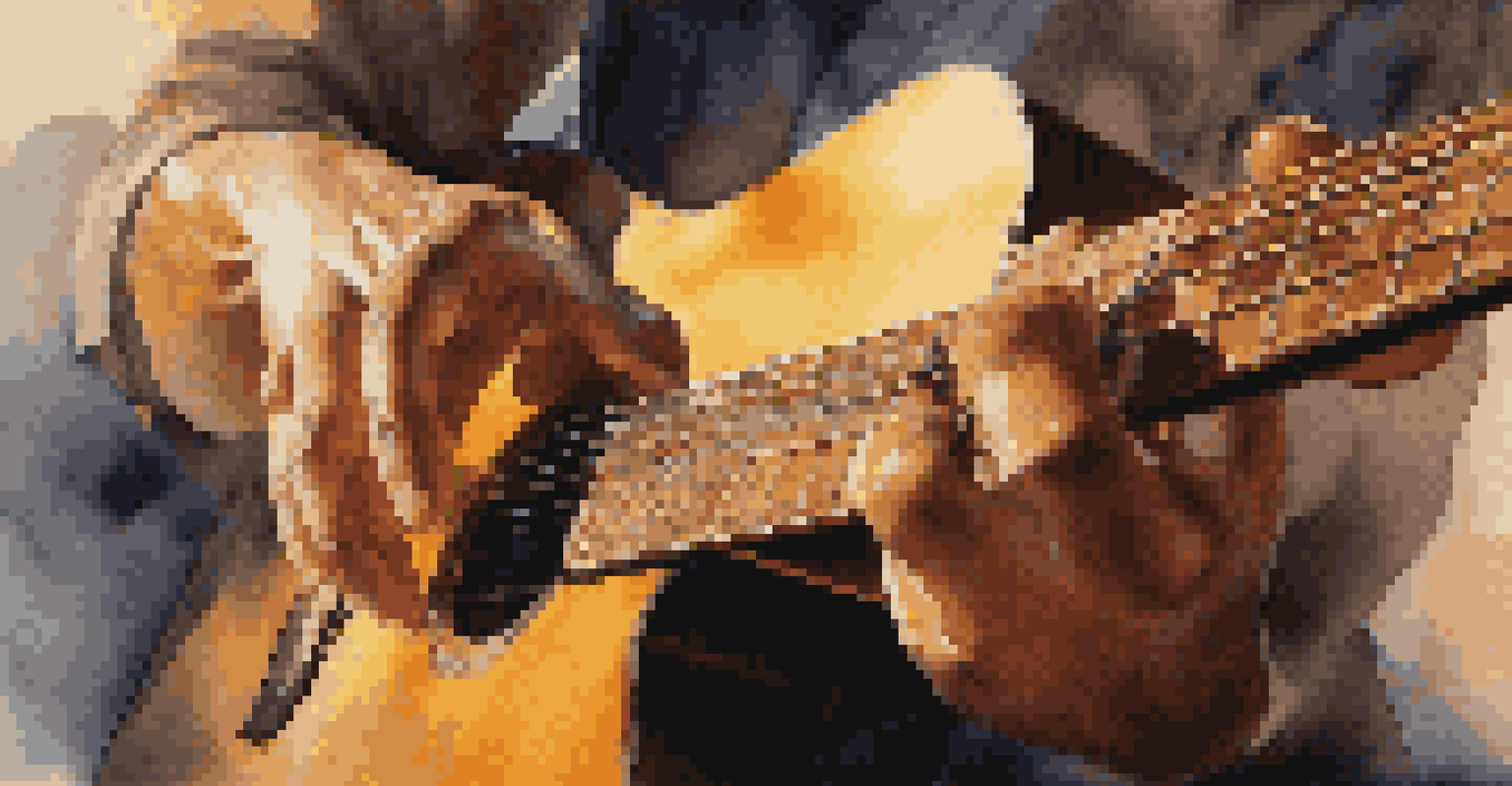The Role of Music in Mental Health Awareness Campaigns

The Power of Music in Healing Mental Health
Music has a unique ability to evoke emotions and memories, making it a powerful tool in mental health awareness campaigns. Its rhythmic beats and melodies can create connections that words sometimes fail to express. Whether it’s a soothing lullaby or an upbeat anthem, music can resonate deeply with individuals struggling with mental health issues.
Music can change the world because it can change people.
For instance, when people listen to their favorite songs, they often experience a sense of comfort and belonging. This emotional connection can encourage individuals to open up about their struggles, fostering a supportive community. By incorporating music into mental health campaigns, organizations can create engaging environments where people feel safe to discuss their feelings.
Furthermore, music therapy has been shown to reduce anxiety and depression, illustrating its therapeutic potential. As campaigns leverage music's healing properties, they not only raise awareness but also promote mental well-being among participants.
Creating Relatable Campaigns Through Music
Using music in mental health campaigns helps create relatable content that resonates with a wider audience. Popular songs often touch on themes of struggle, resilience, and recovery, allowing listeners to see themselves in the narratives presented. Campaigns that include familiar tracks can break down barriers, making mental health discussions more approachable.

For example, campaigns like 'Music for Mental Health' have utilized well-known artists to spread messages about mental wellness. By weaving personal stories into their lyrics, these artists provide a voice to those who may feel unheard. This relatability can inspire individuals to seek help or share their own experiences, fostering a culture of openness.
Music's Role in Mental Health Awareness
Music can evoke emotions and foster connections, making it an effective tool in mental health campaigns.
Moreover, incorporating music into social media campaigns can amplify their reach. Hashtags paired with song lyrics can trend and spread awareness quickly, encouraging an even larger audience to engage in conversations about mental health.
Music as a Catalyst for Community Engagement
Community events featuring live music can serve as powerful platforms for mental health awareness. Such gatherings create spaces for individuals to connect over shared experiences while enjoying the healing power of music. The communal experience of singing or dancing together can foster a sense of belonging, which is vital for mental health.
Where words fail, music speaks.
For instance, organizations often host concerts or open mic nights, providing local artists with a chance to perform while promoting mental health initiatives. These events not only entertain but also educate attendees about mental health resources and support systems available in their community. The synergy created through music can stimulate conversations that are often hard to initiate.
Additionally, these events can help reduce the stigma surrounding mental health issues. When people come together to celebrate the role of music, they inadvertently normalize discussions about mental health, making it easier for individuals to seek help.
The Science Behind Music and Mental Health
Research consistently shows that music can have profound effects on mental health. Studies indicate that listening to music can lower stress levels, reduce anxiety, and even alleviate feelings of depression. This scientific backing strengthens the argument for using music in mental health awareness campaigns.
For example, a study published in 'Psychological Science' found that participants who listened to music experienced a significant decrease in stress hormones. These findings highlight the potential of music as a therapeutic tool for managing mental health. Campaigns that incorporate this knowledge can effectively communicate the benefits of music to their audiences.
Community Engagement Through Music
Live music events create spaces for connection and normalize discussions about mental health.
Furthermore, the act of creating music—whether through singing, songwriting, or playing instruments—can be therapeutic in itself. It encourages self-expression and can lead to improved emotional regulation, making it a valuable aspect of mental health initiatives.
Collaborations with Musicians and Artists
Partnering with musicians and artists can enhance the impact of mental health awareness campaigns. These collaborations can bring visibility and credibility to the cause, as artists often have dedicated followings that trust their messages. When a well-known musician advocates for mental health, their influence can inspire many to engage with the topic.
Artists can contribute by writing songs that reflect the struggles of mental health, sharing personal stories, or participating in events. For example, campaigns featuring musicians who have openly discussed their mental health challenges can create an authentic connection with fans. This authenticity encourages others to share their experiences and seek help.
Moreover, these collaborations can lead to unique fundraising opportunities. Concerts, merchandise sales, and social media promotions can raise significant funds for mental health organizations, amplifying their reach and resources.
Music Festivals and Mental Health Initiatives
Music festivals provide a vibrant platform for mental health initiatives, blending entertainment with awareness. By incorporating mental health resources into festival programming, organizers can reach a diverse audience while promoting well-being. Activities like mindfulness workshops, mental health booths, and discussion panels can complement the musical performances.
For instance, festivals like 'Coachella' have begun integrating mental health resources, emphasizing the importance of self-care in high-energy environments. Attendees can access support and learn coping strategies while enjoying their favorite artists. This dual focus on fun and mental health creates a holistic festival experience.
Collaborations Amplify Impact
Partnering with musicians enhances mental health campaigns by leveraging their influence and reach.
Additionally, the shared experience of attending a festival can foster community bonds, which are crucial for mental health. As people connect over music, they also build relationships and support networks that can help them through challenging times.
Future of Music in Mental Health Awareness
As awareness of mental health continues to grow, the role of music in advocacy is likely to expand. With the rise of digital platforms, musicians and mental health organizations can collaborate more easily to reach global audiences. This presents exciting opportunities for innovative campaigns that creatively integrate music into mental health discussions.
Emerging trends, such as live-streamed concerts and virtual music therapy sessions, can further enhance accessibility. These formats allow individuals from all walks of life to participate, regardless of their location. Campaigns that embrace technology can tap into new demographics and engage younger audiences who are increasingly vocal about mental health.

Ultimately, the future of music in mental health awareness holds great promise. By continuing to leverage music's emotional and therapeutic qualities, campaigns can foster understanding, support, and healing in communities worldwide.